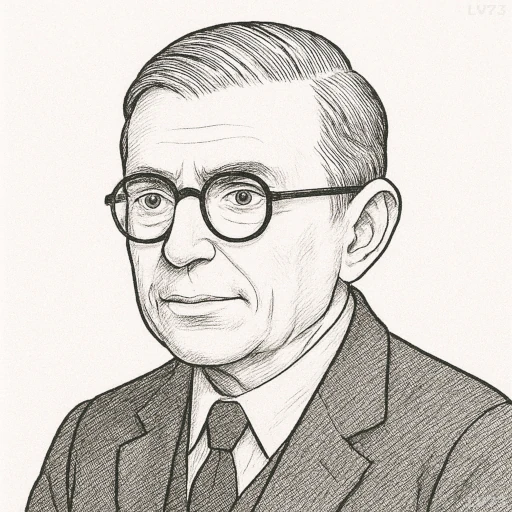“I am not virtuous. Our sons will be if we shed enough blood to give them the right to be.”

- June 21, 1905 – April 15, 1980
- Born in France
- Philosopher, novelist, playwright
table of contents
Quote
“I am not virtuous. Our sons will be if we shed enough blood to give them the right to be.”
Explanation
In this quote, Sartre speaks to the complex relationship between violence, sacrifice, and the creation of meaning in the context of social or political struggle. Sartre admits his lack of virtue, implying that he does not conform to traditional moral ideals. However, he suggests that through struggle—symbolized by the shedding of blood—future generations (in this case, “our sons”) may have the right to live with virtue and freedom. This idea reflects Sartre’s existentialist belief in the importance of action and personal responsibility in creating meaning, but also acknowledges the costs and violence often involved in shaping a new reality.
Sartre’s words can be interpreted as a reflection on the moral ambiguities of political and social revolutions or struggles. In many historical contexts, the creation of a new order, freedom, or virtue often involves sacrifice, including physical violence and bloodshed. While Sartre suggests that the violence might be justified for future generations to live in freedom or virtue, he also acknowledges the moral complexity of such actions—recognizing that the cost of creating a better world might involve compromising one’s own values in the process.
In modern contexts, this quote resonates with the difficult questions surrounding social change and revolution. Throughout history, many movements for justice, equality, and freedom have been marked by violence or the sacrifice of human lives. Sartre’s statement speaks to the tension between the ends (a virtuous future) and the means (the bloodshed and violence required to bring it about). It raises uncomfortable but necessary questions about the price of social and political change and the moral compromises individuals or groups may face when pursuing a better future.
Would you like to share your impressions or related stories about this quote in the comments section?




